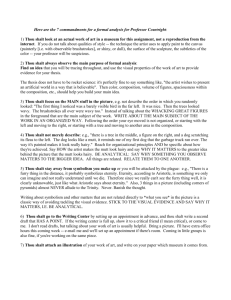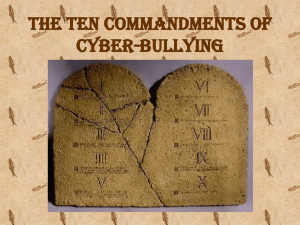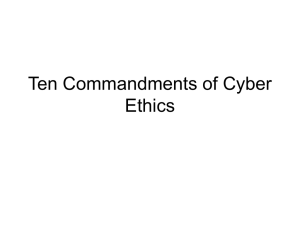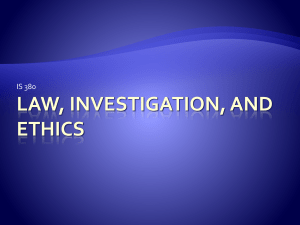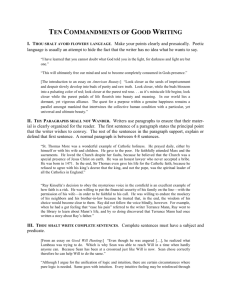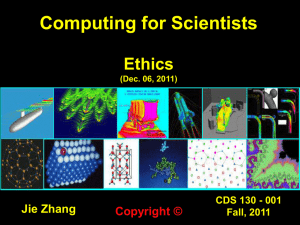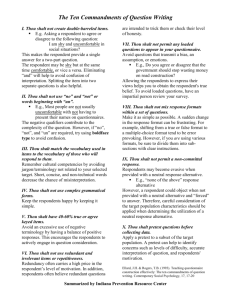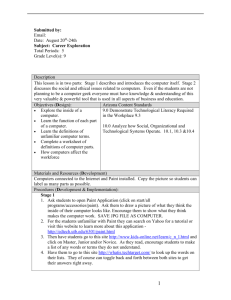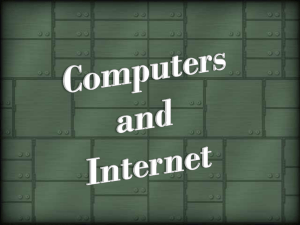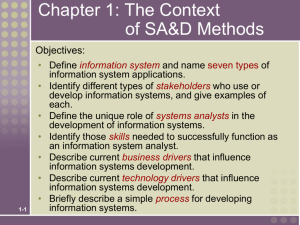Computer Ethics Discussion Ethics are about placing values on acts
advertisement
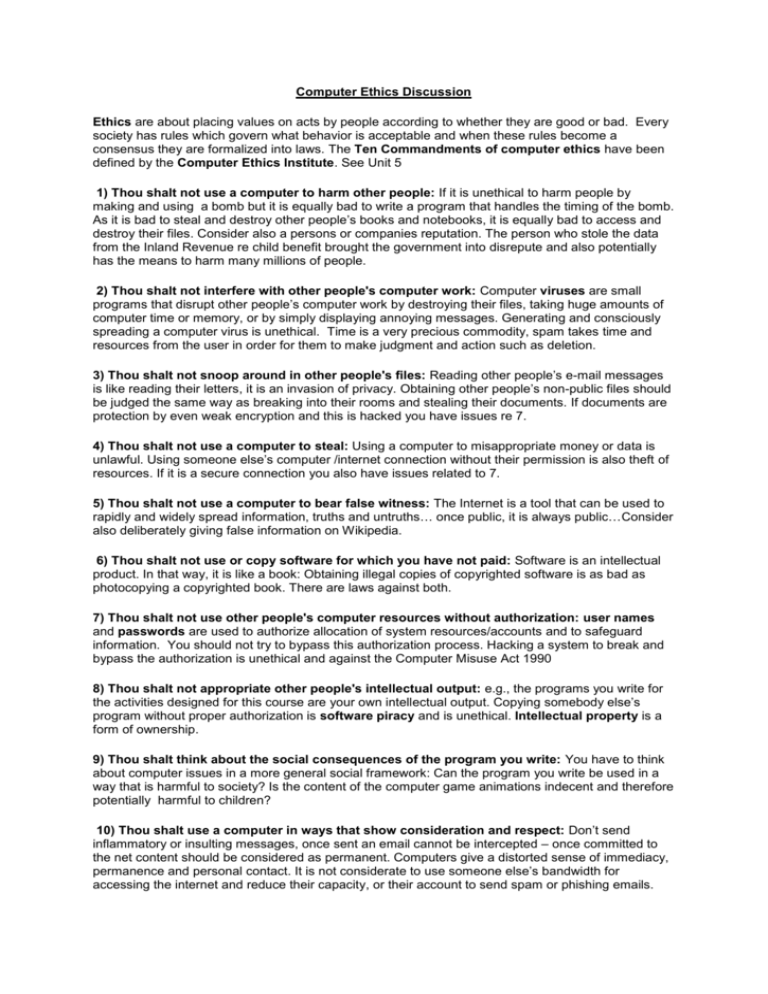
Computer Ethics Discussion Ethics are about placing values on acts by people according to whether they are good or bad. Every society has rules which govern what behavior is acceptable and when these rules become a consensus they are formalized into laws. The Ten Commandments of computer ethics have been defined by the Computer Ethics Institute. See Unit 5 1) Thou shalt not use a computer to harm other people: If it is unethical to harm people by making and using a bomb but it is equally bad to write a program that handles the timing of the bomb. As it is bad to steal and destroy other people’s books and notebooks, it is equally bad to access and destroy their files. Consider also a persons or companies reputation. The person who stole the data from the Inland Revenue re child benefit brought the government into disrepute and also potentially has the means to harm many millions of people. 2) Thou shalt not interfere with other people's computer work: Computer viruses are small programs that disrupt other people’s computer work by destroying their files, taking huge amounts of computer time or memory, or by simply displaying annoying messages. Generating and consciously spreading a computer virus is unethical. Time is a very precious commodity, spam takes time and resources from the user in order for them to make judgment and action such as deletion. 3) Thou shalt not snoop around in other people's files: Reading other people’s e-mail messages is like reading their letters, it is an invasion of privacy. Obtaining other people’s non-public files should be judged the same way as breaking into their rooms and stealing their documents. If documents are protection by even weak encryption and this is hacked you have issues re 7. 4) Thou shalt not use a computer to steal: Using a computer to misappropriate money or data is unlawful. Using someone else’s computer /internet connection without their permission is also theft of resources. If it is a secure connection you also have issues related to 7. 5) Thou shalt not use a computer to bear false witness: The Internet is a tool that can be used to rapidly and widely spread information, truths and untruths… once public, it is always public…Consider also deliberately giving false information on Wikipedia. 6) Thou shalt not use or copy software for which you have not paid: Software is an intellectual product. In that way, it is like a book: Obtaining illegal copies of copyrighted software is as bad as photocopying a copyrighted book. There are laws against both. 7) Thou shalt not use other people's computer resources without authorization: user names and passwords are used to authorize allocation of system resources/accounts and to safeguard information. You should not try to bypass this authorization process. Hacking a system to break and bypass the authorization is unethical and against the Computer Misuse Act 1990 8) Thou shalt not appropriate other people's intellectual output: e.g., the programs you write for the activities designed for this course are your own intellectual output. Copying somebody else’s program without proper authorization is software piracy and is unethical. Intellectual property is a form of ownership. 9) Thou shalt think about the social consequences of the program you write: You have to think about computer issues in a more general social framework: Can the program you write be used in a way that is harmful to society? Is the content of the computer game animations indecent and therefore potentially harmful to children? 10) Thou shalt use a computer in ways that show consideration and respect: Don’t send inflammatory or insulting messages, once sent an email cannot be intercepted – once committed to the net content should be considered as permanent. Computers give a distorted sense of immediacy, permanence and personal contact. It is not considerate to use someone else’s bandwidth for accessing the internet and reduce their capacity, or their account to send spam or phishing emails.
